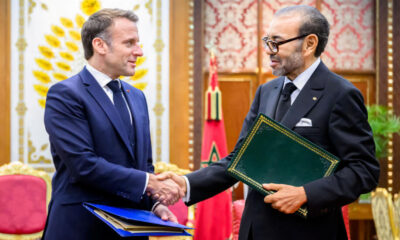According to three sources quoted by AFP, France intends to scale back its military deployment in West and Central Africa to about 600 soldiers in keeping with President Emmanuel Macron’s intentions to lessen France’s military footprint in the area.
Given the strong anti-French sentiment in several former colonies and the competition for influence from nations like Russia, Macron declared in February 2023 that there would be a “noticeable reduction” in the number of French troops stationed in Africa.
A strategy being discussed with allies in Africa indicates that France intends to significantly scale back its so-called “pre-positioned” forces in the continent.
Two government-affiliated sources, as well as a military source, claim that France will only maintain about 100 troops in Senegal, West Africa, down from 350 currently, and about 100 in Gabon, Central Africa.
Paris intends to maintain about 300 troops in Chad, in north-central Africa, down from 1,000 currently, and about 100 troops in Ivory Coast, on the southern coast of West Africa.
According to the three sources, the diminished presence can occasionally be increased in response to the demands of regional partners. The French General Staff was contacted by AFP, but they declined to comment.
Up until two years ago, France maintained around 5,000 troops in the Sahel region of Africa as part of the Barkhane anti-jihadist campaign, in addition to the about 1,600 forces that were pre-deployed in Gabon and West Africa. However, the juntas that took over in Mali in 2021, Burkina Faso in 2022, and Niger in 2023 have been steadily driving it out.
Now, all three nations have security agreements in place with Russia, which has been looking to increase its influence throughout the continent. The final nation in the Sahel to get French forces is Chad, which is led by Mahamat Idriss Deby, the son of Idriss Deby Itno, a former president who served for more than 30 years.


 Metro1 day ago
Metro1 day ago
 Sports1 day ago
Sports1 day ago
 Culture1 day ago
Culture1 day ago
 Politics2 days ago
Politics2 days ago





























